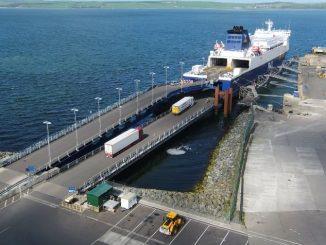
Logistics UK met with key government members this week to demand hauliers be given grants to cover the cost of empty running created by Brexit border issues.
Chief executive David Wells met Chancellor of the Duchy of Lancaster Michael Gove MP, Northern Ireland Secretary Brandon Lewis and transport secretary Grant Shapps to discuss the problems being faced by businesses trying to move freight across the Irish Sea.
Wells asked the ministers to consider making grant support available to hauliers affected by increased empty running, which has seen some hauliers shipping scores of empty trailers back to Northern Ireland since Brexit kicked in this month.
Logistics UK’s other key requests are that a Trusted Trader Scheme be set up to speed up Sanitary and Phytosanitary (SPS) checks and the creation of an advice line targeting SMEs to assist them in their preparations for moving goods.
Read more
- Freight levels to Northern Ireland will fall unless border friction is sorted, Logistics UK warns MPs
- Customs software hitch throws Northern Ireland Brexit plan into more confusion
- Operators to get help with red tape created by Northern Ireland sea border
In addition, Logistics UK suggested that the proposed solution to the groupage issues experienced by those moving goods to NI be fully resourced with clear guidance for industry as soon as possible.
“With only five days between the confirmation of the Free Trade Agreement with the EU and the end of the Transition Period, it was always likely that businesses would be testing systems in real time from 1 January 2021.
In a statement, Logistics UK said: “This process has highlighted issues with several areas of trade between GB and NI, including problems with SPS checks on food consignments, a lack of capacity among customs intermediaries and a significant imbalance between shipments to and from NI which is having a significant effect on NI hauliers.”
It added: “The conversations were constructive, and we will be maintaining regular contact with CDL’s office to ensure progress can be made to relieve some of the issues which have been experienced by our members.”













